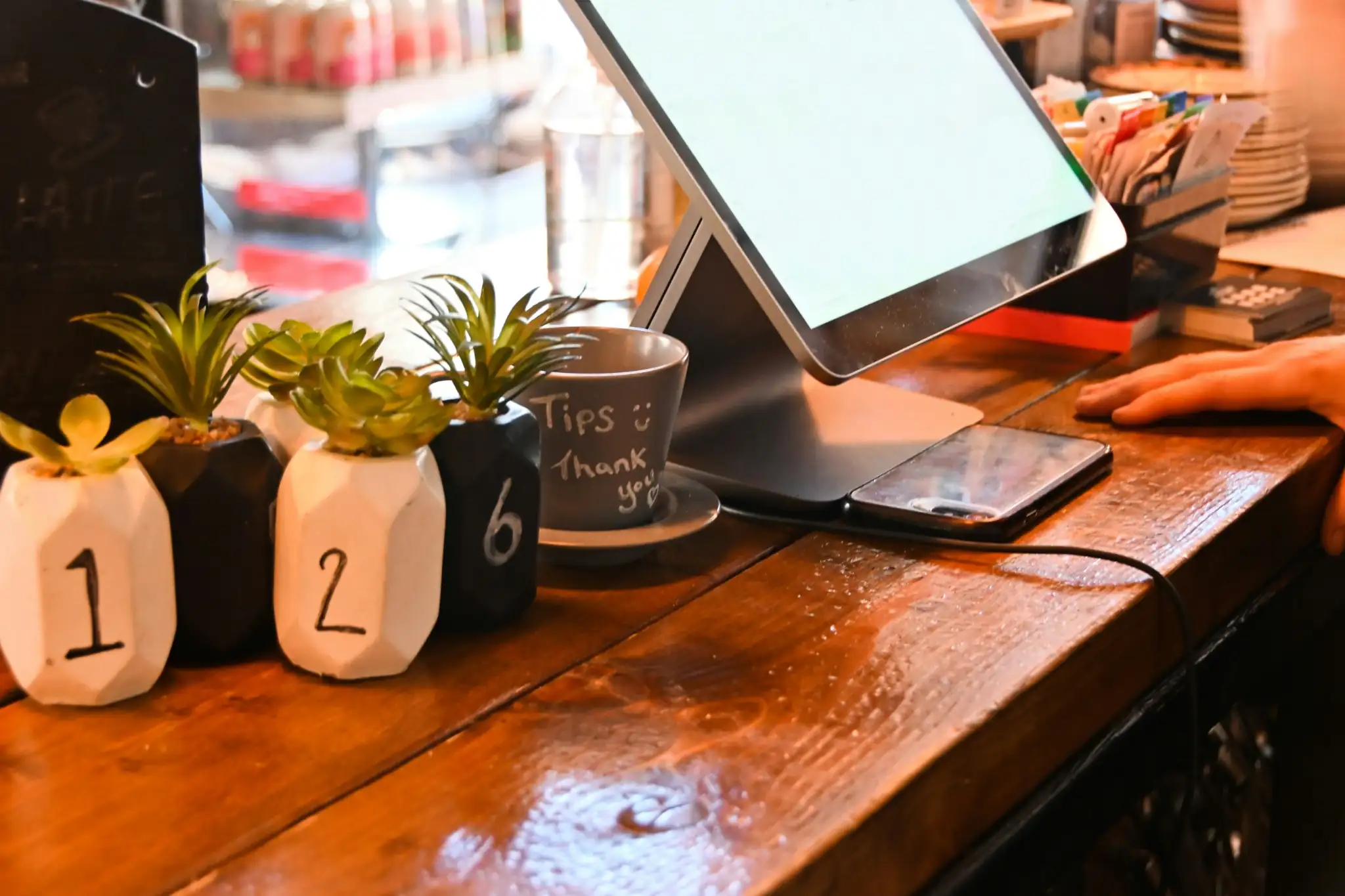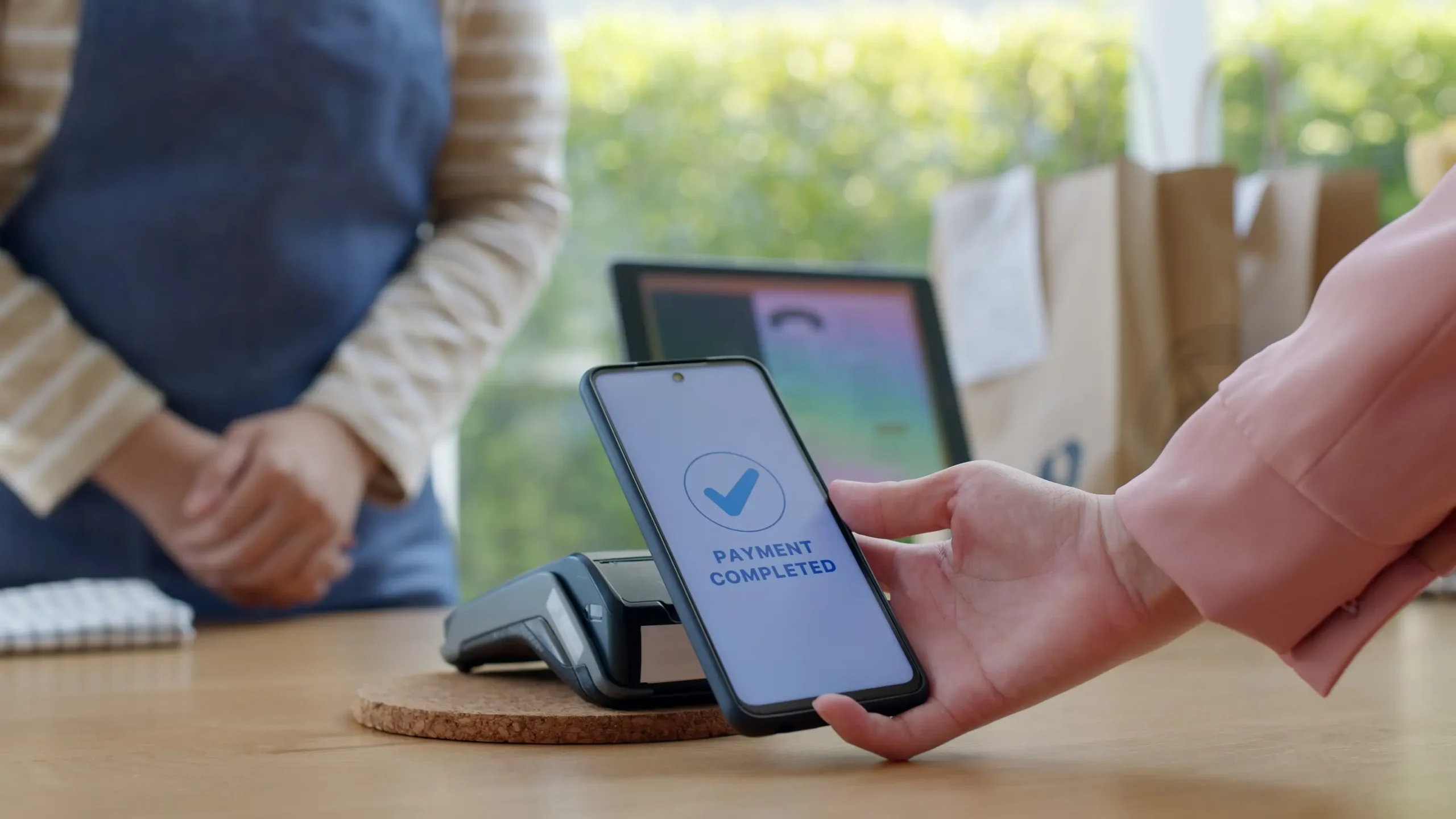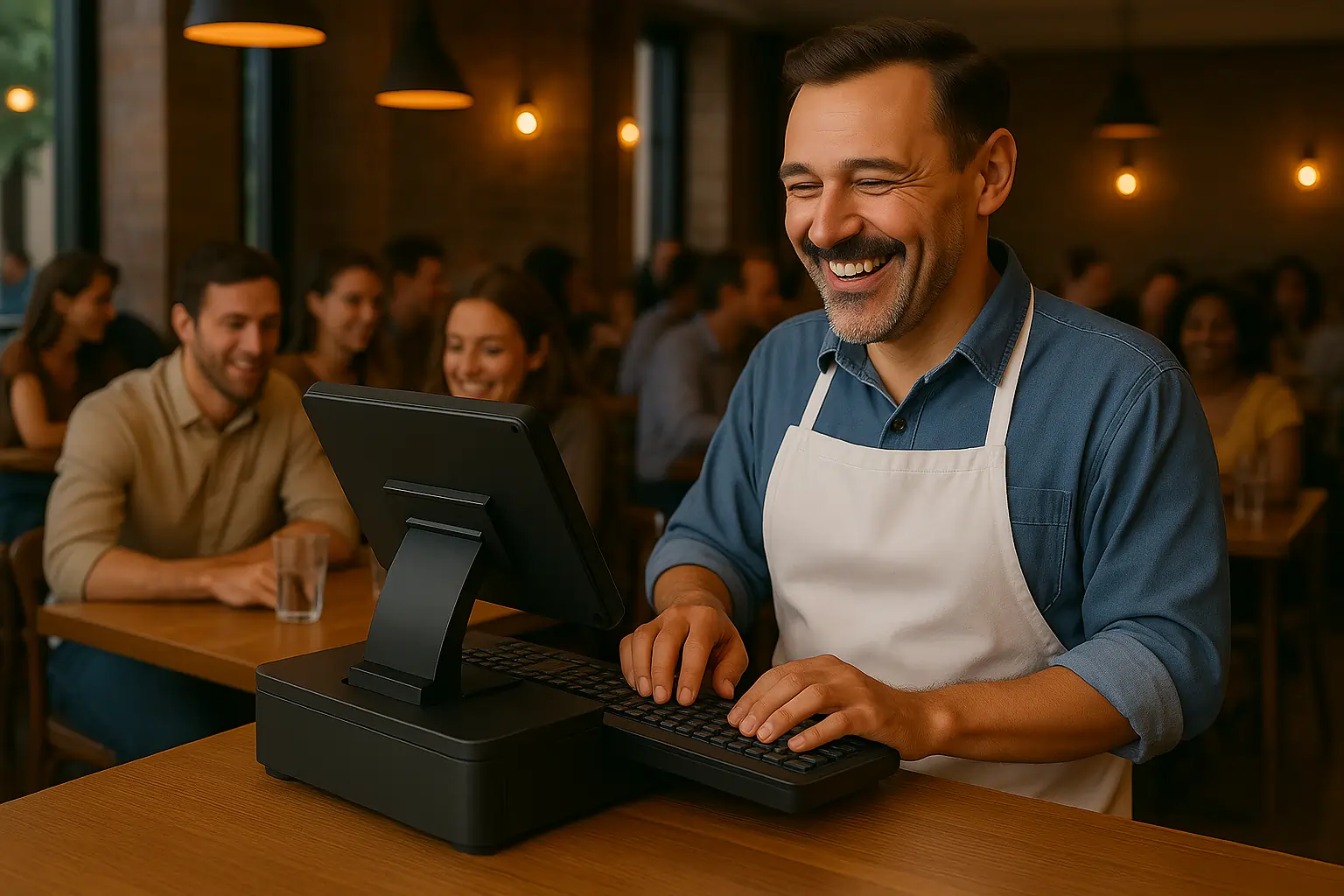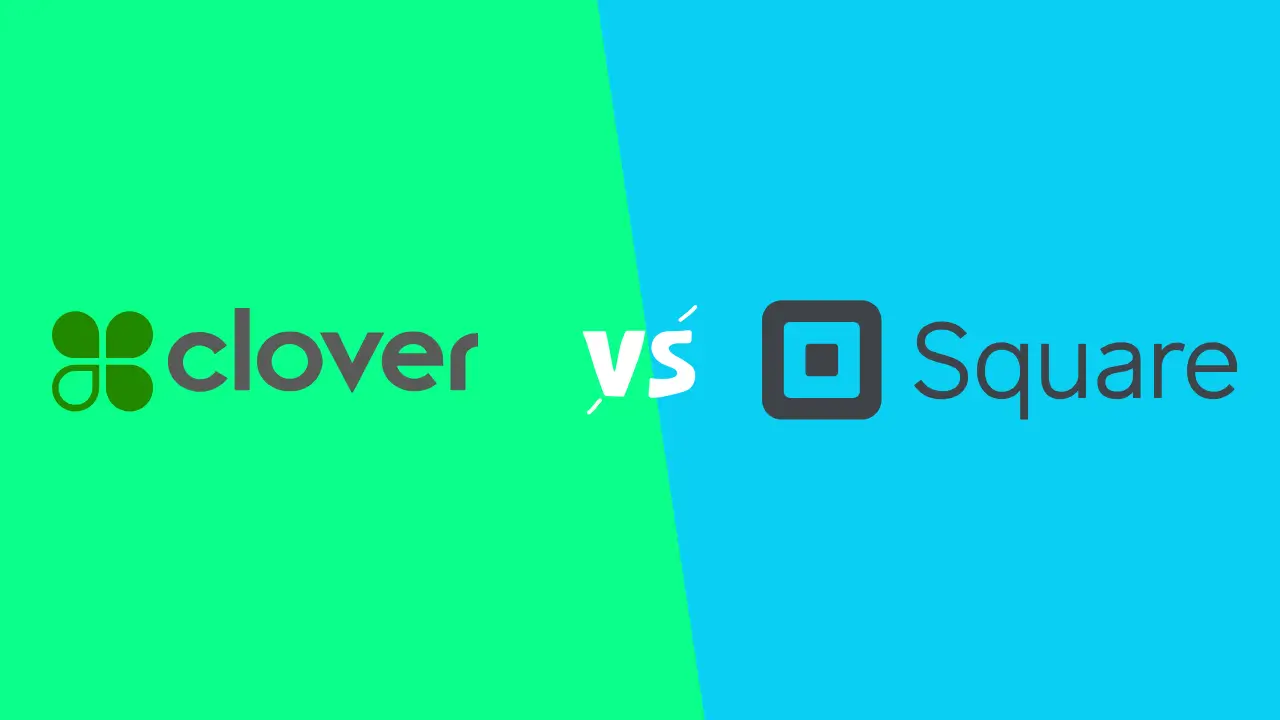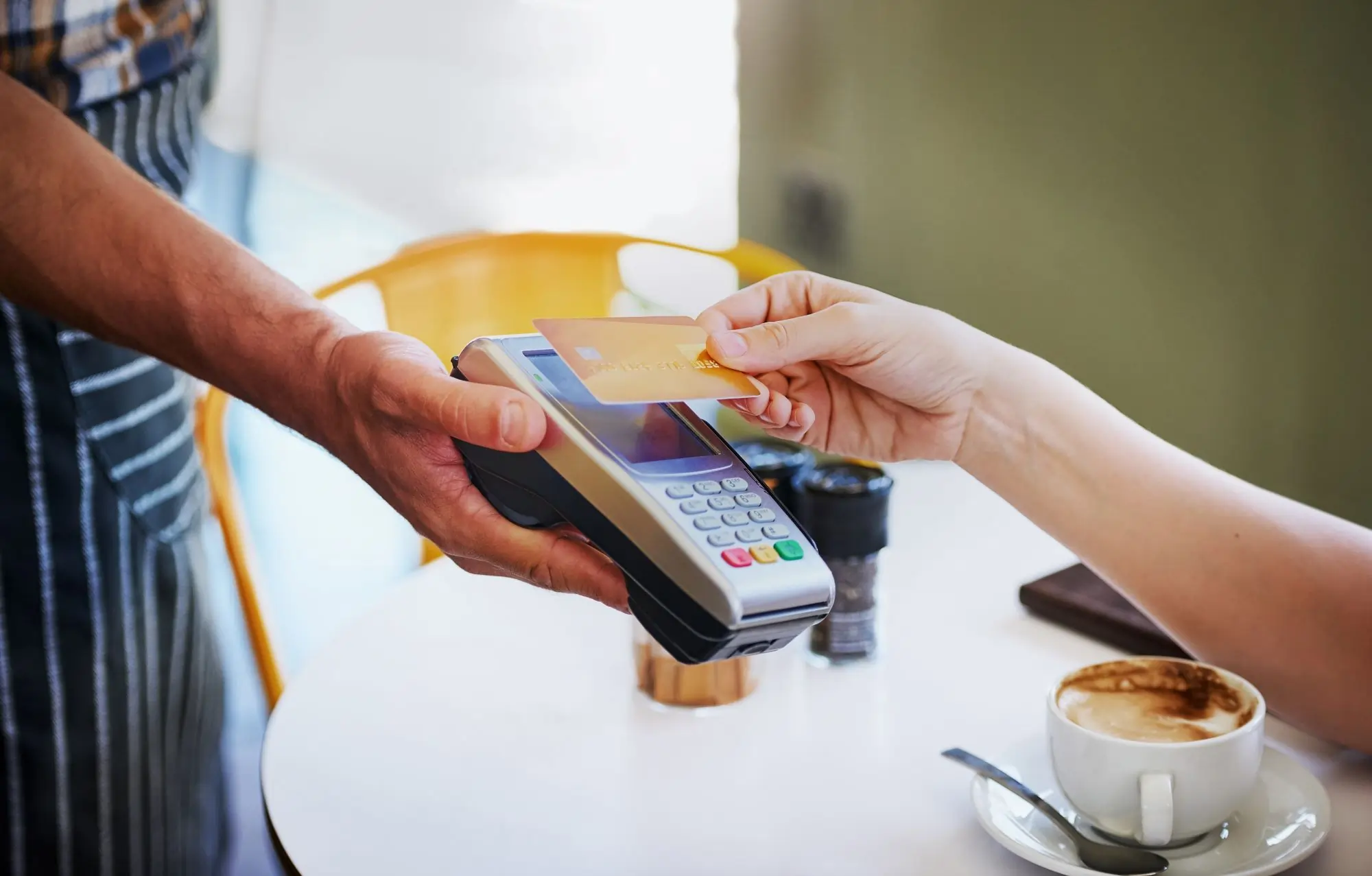Best POS Systems for Small Businesses in 2025
Last updated: September 2025
POS for small businesses is an essential tool that helps SMBs grow, manage day-to-day operations, and gain valuable insights. It keeps your business running smoothly by simplifying sales, providing real-time inventory reports, and making it easier to track and analyze performance.
- Free setup & no hidden fees
- Create customer profiles in seconds
- Simple to use inventory management






- Process digital wallets & popular payments
- Personalize marketing to boost loyalty
- Sync online & in-store sales effortlessly


- Advanced inventory management capabilities
- Smarter sales & reporting
- Cloud-based data management


- Cloud-hosted & accessible from anywhere
- Accept payments & track inventory
- Offer gift cards to boost customer retention






- No contracts or hidden fees
- Advanced reporting accessible from anywhere
- Retain customers with loyalty programs




- Start for free
- Customize your package
- Features to help your restaurant adapt




What Is a POS System for SMBs?
A POS system for small and micro businesses is the place where customers complete purchases, whether in-store, online, or on the go. It includes the hardware and software used to accept payments, track sales, manage inventory, and handle other daily business tasks. A modern POS system goes beyond a simple cash register by helping you streamline operations, improve accuracy, and make smarter business decisions.
Think of it as your business’s command center.
Modern POS systems combine hardware (like card readers, barcode scanners, or receipt printers) with software that helps you run your business more efficiently. You can track sales, manage inventory, handle refunds, run promotions, and even see which products are selling best – all from one system.
For small businesses, a good POS system can help with:
- Accepting payments (credit cards, digital wallets, tap-to-pay, etc.)
- Keeping track of what’s in stock
- Managing customer info and purchase history
- Running loyalty programs and discounts
- Generating sales reports and insights
- Syncing with your online store or accounting tools
In short, a POS system helps you sell smarter – not harder. Whether you run a retail store, a coffee shop, a salon, or a food truck, the right POS can save you time, reduce errors, and help your business grow.
Quick Look: Top POS Systems for Small Business
⭐ Square – Best all-around POS for small businesses
⭐ Shopify POS – Best for selling online & in-store
⭐ Lightspeed – Best for growing retail stores
⭐ Clover – Best for custom setups & flexibility
⭐ KORONA POS – Best for niche and specialty retailers
⭐ Toast POS -Best for restaurants and food businesses
The Best POS Systems for Small Business (Full Reviews)
The ideal system for small and micro businesses is designed specifically with their needs in mind. It is user-friendly, flexible, and provides the necessary tools for growth. With features like real-time reporting and simple inventory management, these POS solutions aim to help you operate your business more efficiently every day.
Below are the best POS solutions for small e-commerce stores, restaurants, and retail businesses.
Square POS
Best for: Small businesses that want an easy, affordable, all-in-one solution
Hardware: Optional (start with your phone or tablet)
 Free setup & no hidden fees
Free setup & no hidden fees  Create customer profiles in seconds
Create customer profiles in seconds Square POS is a great POS system for small businesses that need simplicity and affordability. It’s perfect for restaurants, cafes, and small retail shops that want a fast setup with minimal costs. Square offers a free basic plan, allowing businesses to accept payments, manage inventory, and engage customers without breaking the bank. It also includes valuable tools for growing businesses, such as analytics, invoicing, and team management. This system is designed for businesses that need flexibility, making it especially effective for mobile POS system for small business like food trucks and market stalls.
Specific Benefits:
- Free basic plan with no monthly fees
- Easy setup with no long-term contracts
- Works well for businesses on the move, such as food trucks and pop-up stores
- Provides tools for inventory management and customer engagement
- Free website with online store integration
Perfect for: Retail shops, cafes, salons, food trucks, pop-up vendors, and service providers.
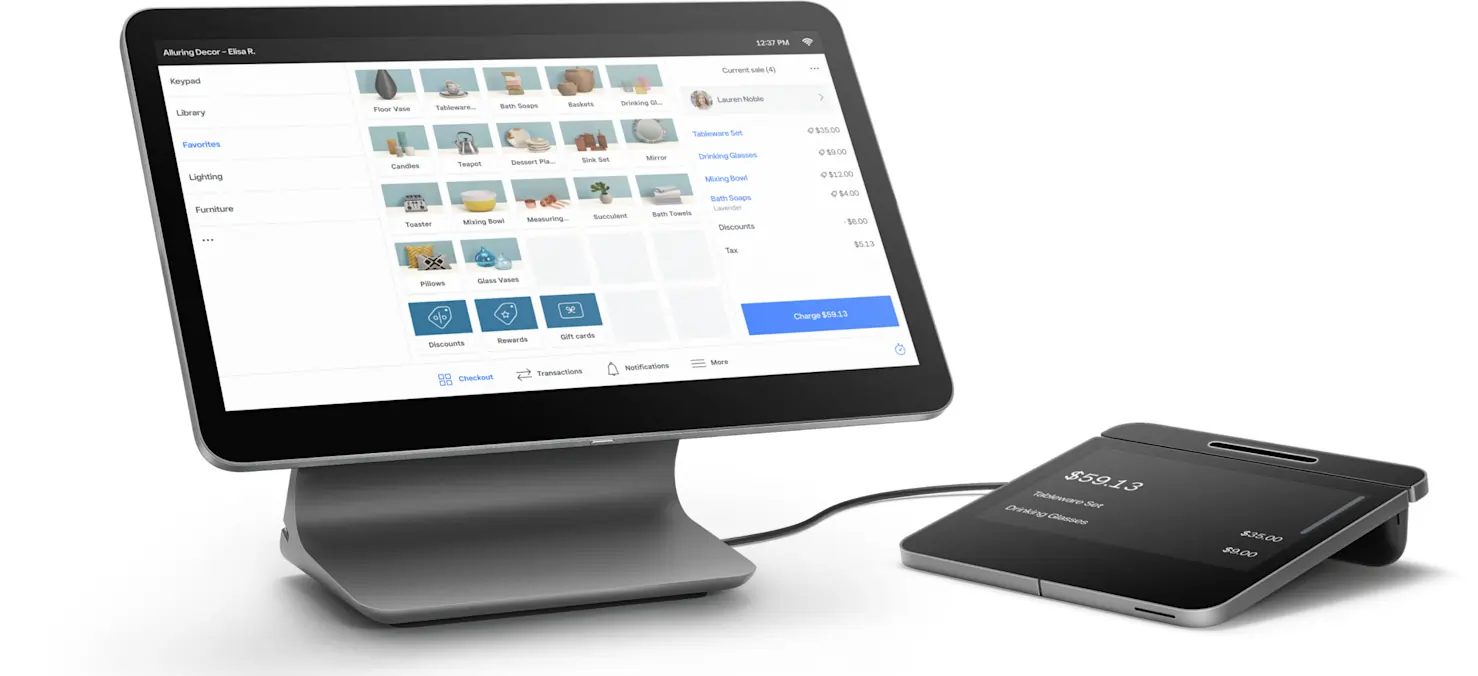
Shopify
Best for: Businesses selling both online and in-store
Hardware: Shopify card reader or full POS kit
 Process digital wallets & popular payments
Process digital wallets & popular payments  Personalize marketing to boost loyalty
Personalize marketing to boost loyalty Shopify POS is ideal for businesses that are managing online and physical stores. Retailers using Shopify for their eCommerce business will find the integration seamless, allowing them to track inventory, sales, and customer data across all channels. With its easy-to-use interface, Shopify POS helps small retail businesses stay organized by unifying their online and in-person sales, making it perfect for boutiques, pop-up shops, and any business looking to expand digitally.
Specific Benefits:
- Seamless integration with Shopify’s eCommerce platform
- Real-time inventory tracking across channels
- Manage both online and in-store sales in one system
- Perfect for businesses looking to scale with both retail and digital presence
Perfect for: Ecommerce brands, boutiques, brick-and-click shops, and craft sellers.
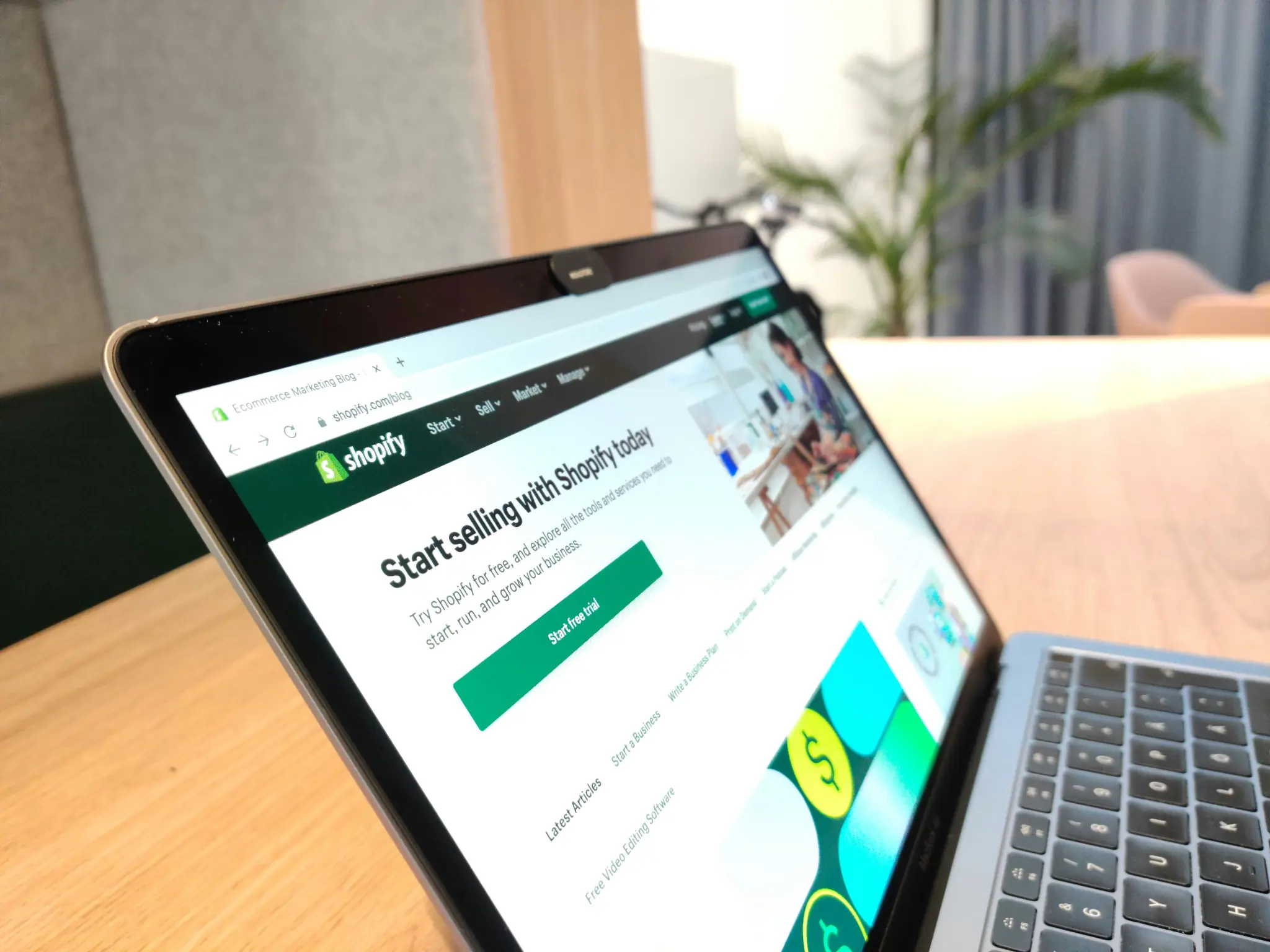
Lightspeed POS
Best for: Retailers with large inventories and multiple locations
Hardware: Compatible with iPads or bundled with Lightspeed hardware
 Advanced inventory management capabilities
Advanced inventory management capabilities  Smarter sales & reporting
Smarter sales & reporting Lightspeed is built for serious retail. If your business manages lots of SKUs, multiple stores, or complex inventory, this POS gives you the control you need. The interface is sleek, and the backend is powerful without being overwhelming.
Specific Benefits:
- Advanced inventory tools (including bulk import & matrix variants)
- Multi-store management
- Built-in CRM for customer insights
- Vendor purchase ordering and supplier management
- Deep analytics and sales trends
Perfect for: Apparel shops, pet stores, sports gear shops, home goods, or any retailer scaling up.
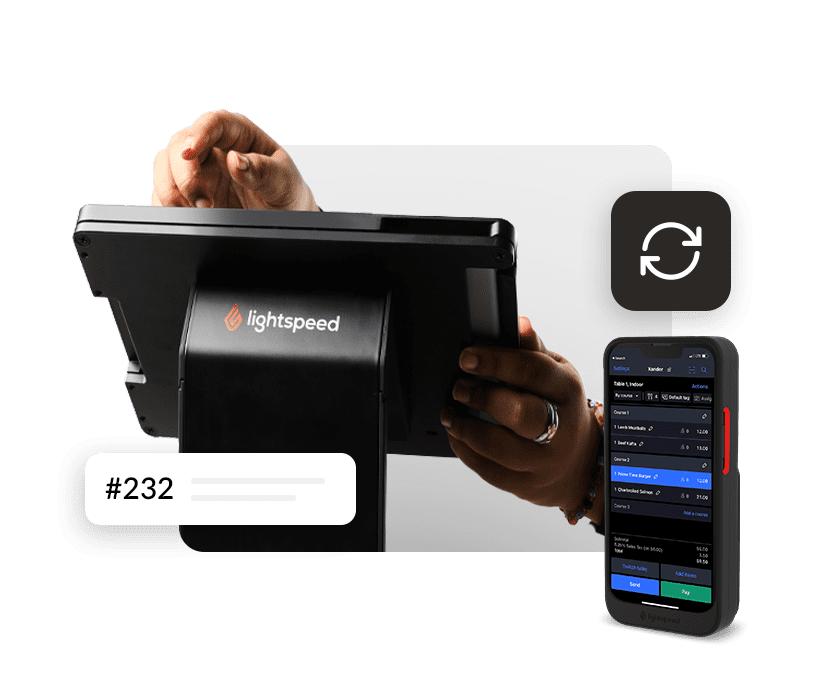
Clover POS
Best for: Small businesses that want flexibility and scalable hardware
Hardware: All-in-one Clover hardware (Mini, Flex, Station)
 Cloud-hosted & accessible from anywhere
Cloud-hosted & accessible from anywhere  Accept payments & track inventory
Accept payments & track inventory Clover offers sleek hardware, an app-based system, and tons of customization options. Whether you run a quick-service restaurant, a salon, or a retail store, you can tailor Clover to your specific needs. The interface is intuitive and the system runs smoothly, even during peak hours.
Specific Benefits:
- Contactless and EMV payments
- Employee management & time tracking
- Offline mode (keep selling even without Wi-Fi)
- Integrates with apps like QuickBooks, DoorDash, and more
- Customizable dashboards and reports
Perfect for: Restaurants, salons, retail shops, and businesses that need great hardware with flexibility.
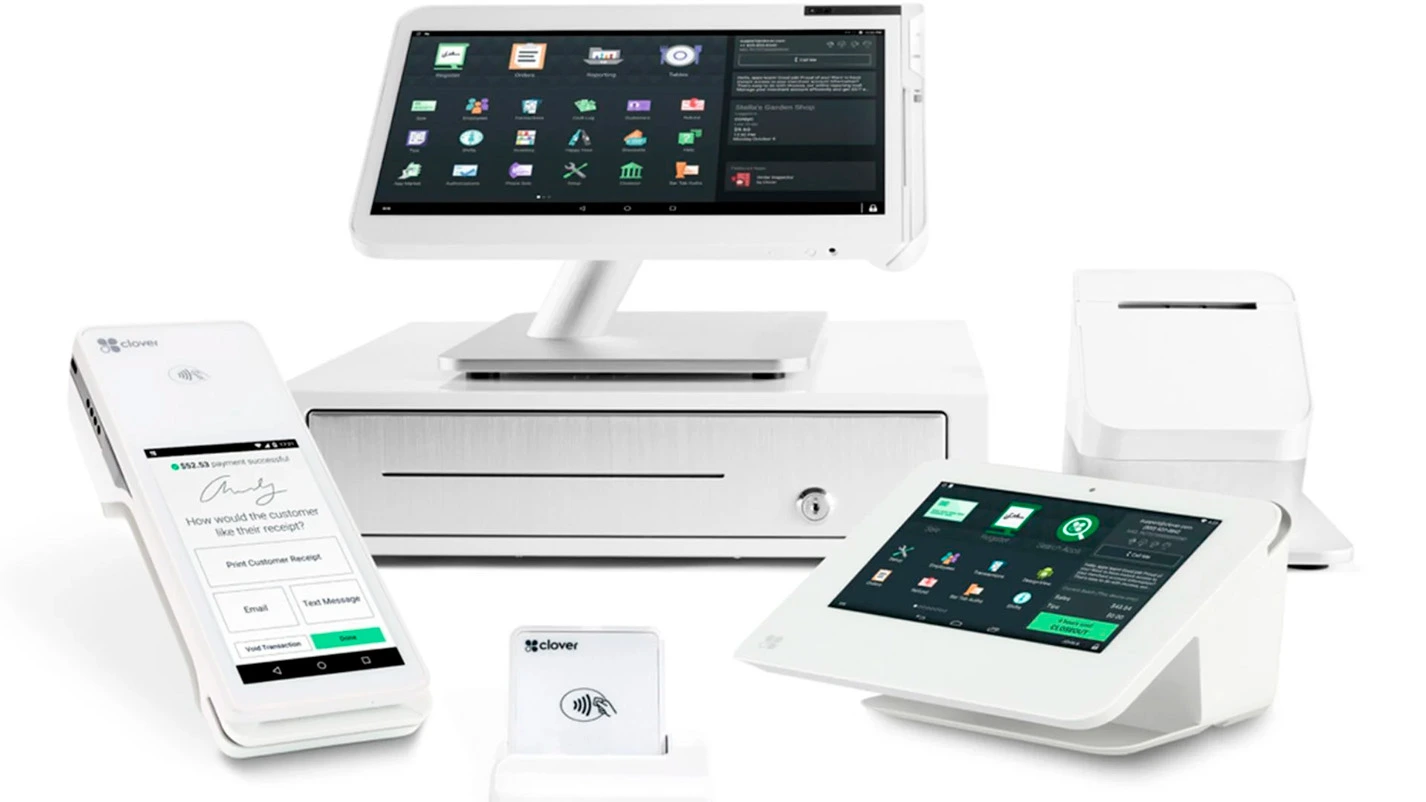
KORONA POS
Best for: Specialty retailers and niche businesses with complex needs
Hardware: BYOD (bring your own device) or purchase through KORONA
 No contracts or hidden fees
No contracts or hidden fees  Advanced reporting accessible from anywhere
Advanced reporting accessible from anywhere KORONA POS stands out for its flexibility and industry-specific features. It’s especially strong for businesses with unique needs – like museums, events, vape shops, and wineries. The reporting and inventory tools are robust, and the system is cloud-based with strong offline capabilities.
Specific Benefits:
- Custom product groups and sales triggers
- Ticketing and event integration
- Employee roles and performance tracking
- Powerful analytics dashboard
- Loyalty tools and recurring billing options
Perfect for: Specialty retail, amusement parks, liquor stores, and events-based businesses.
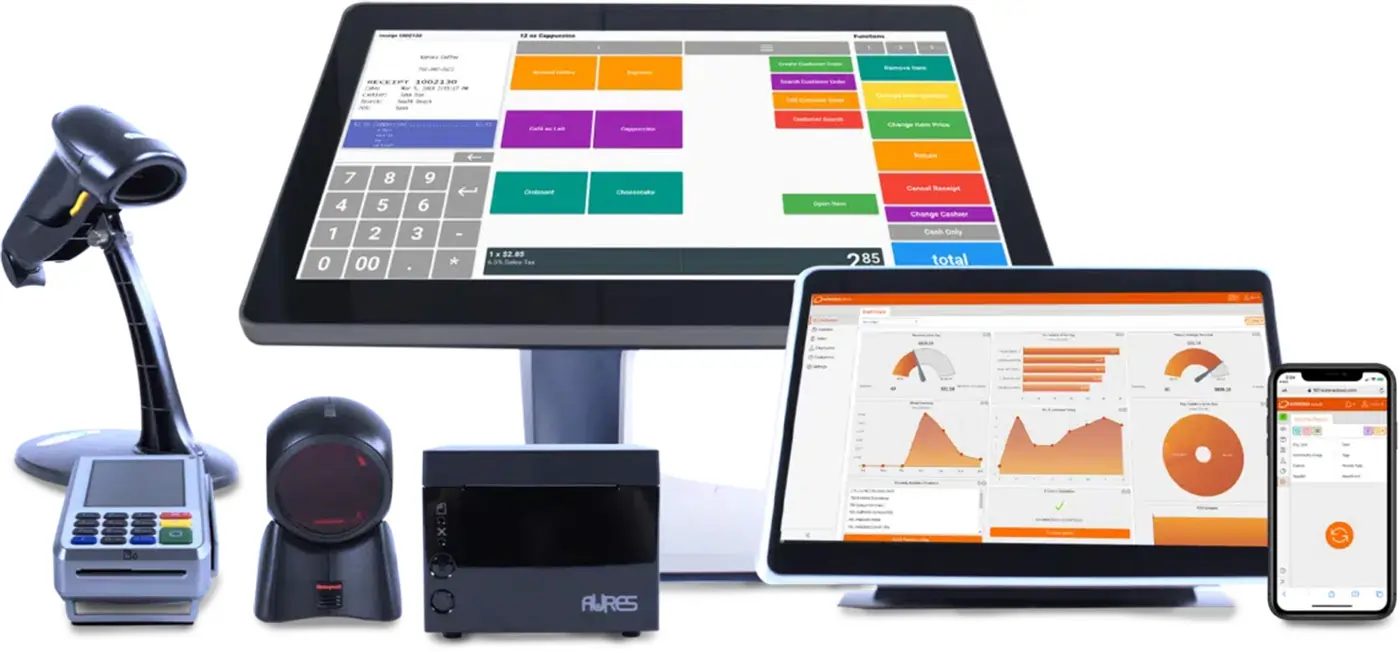
Toast POS
Best for: Restaurants, cafes, and food service businesses
Hardware: Toast hardware required (Android-based terminals, handhelds, kiosks)
 Start for free
Start for free  Customize your package
Customize your package Toast POS is built specifically for the food service industry, making it the best POS system for small restaurants. Whether you run a restaurant, cafe, or food truck, Toast offers features like table management, online ordering, and delivery options, ensuring smooth operations in both dine-in and takeaway environments. It also integrates with delivery services and offers advanced reporting, which helps food service businesses streamline their workflows and improve customer service.
Specific Benefits:
- Tableside ordering and payments with handheld devices
- Kitchen display systems (KDS) to streamline order flow
- Menu management that’s quick and customizable
- Online ordering and delivery integration (no extra tablet needed)
- Built-in tipping, staff management, and time tracking
- Real-time reports on sales, menu performance, and labor costs
Toast also offers tools for marketing, loyalty, and gift cards – all in one dashboard. Plus, it’s a cloud-based system, so you can manage your restaurant from anywhere.
Perfect for: Coffee shops, fast-casual restaurants, bakeries, bars, breweries, food trucks, and full-service dining.
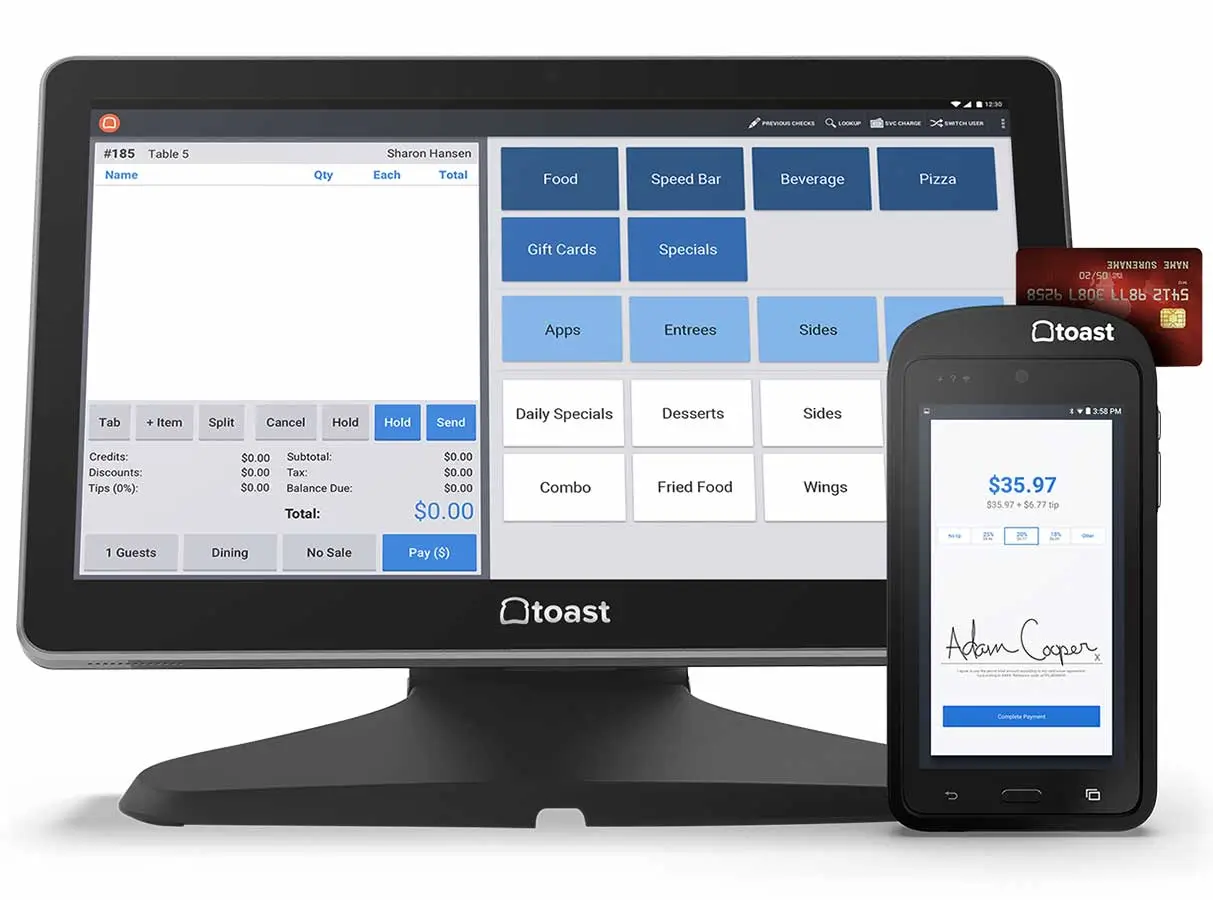
Why You Can Trust the Expertise of Sonary
At Sonary, we are committed to providing accurate and trustworthy information to help you make informed decisions. Our research process is meticulous, transparent, and guided by a dedication to maintaining the highest standards of integrity, ensuring accurate, real-world insights.
Read more
Unlike many other review platforms, we conduct in-depth evaluations of the software and services we feature. Our expert team tests and actively uses the tools we review to understand their features, performance, and value comprehensively. Our assessments are based on real-world use, giving you insights beyond surface-level descriptions. Our research methodology includes analyzing key consumer factors such as pricing, functionality, device usability, scalability, customer support quality, and unique industry-specific features. This hands-on approach and dedication to transparency mean you can trust Sonary to deliver regular, up-to-date content and recommendations that are well-researched and genuinely helpful for your business needs.Small Business POS Systems – Comparison Table
| POS System | Best For | Online Sales | Inventory Tools | Hardware Options |
| Square | All-around POS for small biz | ✅ Built-in | ✅ Basic | Phone, tablet, Square kits |
| Shopify | Online + in-person selling | ✅ Full sync | ✅ Smart sync | Shopify readers, POS kits |
| Lightspeed | Retailers with large inventories | ✅ Shopify, BigCommerce | ✅ Advanced | iPad, Lightspeed bundles |
| Clover | Restaurants & custom setups | ✅ With apps | ✅ Customizable | Clover devices only |
| KORONA | Niche or specialty businesses | ✅ Via add-ons | ✅ Very detailed | BYOD or KORONA hardware |
| Toast |
Restaurants & food businesses | ✅ Built-in | ✅ Menu-focused | Toast terminals & handhelds |
What Small Businesses Should Look for in a POS System
When choosing a POS system for your small business, it’s important to focus on features that simplify your daily operations and support your growth
- Ease of use: You and your team should be able to learn it fast.
- Cost structure: Look at both monthly fees and transaction fees.
- Hardware flexibility: Can you use what you already have?
- Integrations: Will it play nicely with your accounting, e-commerce, or marketing tools?
- Inventory needs: Basic or advanced?
- Industry fit: Does it offer features that match your business type?
The best POS systems for small businesses aren’t one-size-fits-all – they need to match features with your specific workflow.
Still unsure which one fits your business? Think about where and how you sell. If you’re just starting out, mobile POS is usually the easiest and most affordable place to begin.
How much should a small business pay for a POS system?
The cost of a POS system for a small business can vary significantly based on your specific needs, including hardware, software features, and the number of locations. Here’s a general breakdown:
-
Software: Monthly software fees can range from $0 for basic plans to over $199 per month for more advanced systems with features like in-depth analytics, loyalty programs, and advanced inventory management. Many providers offer discounts for annual subscriptions.
-
Hardware: The initial hardware investment can range from $0 (if you use your existing smartphone or tablet) to over $2,000. A basic setup with a tablet, card reader, and cash drawer typically costs between $500 and $1,000.
-
Payment Processing Fees: These are transaction-based fees, usually a percentage of the sale plus a fixed fee per transaction (e.g., 2.6% + $0.10). These fees vary depending on the card type and the pricing model of your provider (flat-rate or interchange-plus).
How do I choose a POS for a small business?
Choosing the right POS system is crucial for your business’s success. Here are key factors to consider:
-
Business Type: Your industry will determine the features you need. A restaurant will require features like table management and order modifiers, while a retail store will need robust inventory management and barcode scanning.
-
Ease of Use: The system should be intuitive for you and your employees to learn and use, minimizing training time and errors.
-
Features: Look for essential features like sales reporting, customer relationship management (CRM), inventory tracking, and employee management.
-
Hardware Compatibility: Ensure the POS software is compatible with your existing hardware or that the provider offers affordable and reliable hardware options.
-
Integrations: The POS system should integrate seamlessly with other software you use, such as accounting software (QuickBooks, Xero), e-commerce platforms (Shopify, BigCommerce), and marketing tools.
-
Payment Processing: Consider the payment processing fees, the types of payments you can accept (credit/debit cards, mobile payments, contactless), and whether you are locked into a specific payment processor.
-
Scalability: Choose a system that can grow with your business, allowing you to add more locations, employees, and features as needed.
-
Customer Support: Reliable 24/7 customer support is essential to resolve any technical issues quickly and efficiently.
What’s the best free POS software for small businesses?
Several providers offer excellent free POS software plans that are ideal for new and small businesses. Some of the top options include:
-
Square POS: Widely regarded as the best overall free POS system, Square offers a feature-rich free plan that includes a magstripe card reader, sales and inventory tracking, customer profiles, and an online store. It’s a great option for various business types, including retail, restaurants, and service-based businesses.
-
Helcim: Best for businesses with large ticket items or wholesalers due to its interchange-plus pricing, which can be more cost-effective for larger transactions.
-
Toast: A popular choice for full-service restaurants, offering a free starter plan with core restaurant-specific features.
-
PayPal Zettle: A good option for occasional sellers and businesses that already use PayPal for other transactions.
It’s important to note that while the software may be free, you will still have to pay payment processing fees on each transaction.
Can I still take payments without a signal, offline?
Yes, many modern POS systems offer an offline mode that allows you to continue accepting credit card payments even when your internet connection is down. The transactions are securely stored on the device and are processed automatically once you’re back online. This feature is crucial for businesses that operate at events, markets, or in areas with unreliable internet service. However, it’s important to be aware that in offline mode, you assume the risk of a payment being declined once it’s processed.
What cards can I accept with POS? Do fees vary by card?
Most POS systems allow you to accept all major credit and debit cards, including Visa, Mastercard, American Express, and Discover. You can also accept mobile payments like Apple Pay and Google Pay.
Yes, the processing fees can vary by card. This is due to the different interchange rates set by the credit card companies. Premium rewards cards and corporate cards typically have higher interchange rates than standard debit cards. The pricing model of your payment processor will also affect the final fee you pay.
How quickly can I access my funds?
The time it takes to access your funds can vary depending on the POS provider. Some providers offer instant or next-day deposits, while others may take 1-3 business days to transfer the funds to your bank account. If quick access to your cash flow is a priority, look for a provider that offers fast settlement times.
How do I issue refunds?
Issuing a refund through a POS system is a straightforward process. Generally, you would:
-
Access your transaction history within the POS software.
-
Locate the original transaction by searching for the receipt number, customer name, or date.
-
Select the “Refund” option.
-
Choose to refund the entire amount or specific items from the sale.
-
The funds will be returned to the customer’s original payment method.
Can I manage my inventory from my Point of Sale?
Yes, most modern POS systems include robust inventory management features that allow you to:
-
Track your stock levels in real-time.
-
Receive low-stock alerts to prevent stockouts.
-
Manage product variations (e.g., size, color).
-
Create purchase orders and manage vendors.
-
Generate reports on your best-selling items and profit margins.
Effective inventory management is essential for optimizing your stock, reducing waste, and making informed purchasing decisions.
Can I sell online with my POS, and will it sync with in-store sales?
Absolutely. Many POS systems offer e-commerce integration, allowing you to sell your products online and in-store from a single, unified platform. This omnichannel approach provides a seamless experience for your customers and simplifies your operations by:
-
Syncing your inventory: When an item is sold online, the inventory is automatically updated across all your sales channels to prevent overselling.
-
Centralizing your data: You can manage all your online and in-store sales, customer data, and inventory from one dashboard.
-
Offering flexible fulfillment options: You can offer customers the option to buy online and pick up in-store.
What is the purpose of a POS system in a small business?
A POS system is much more than a modern cash register. Its primary purpose is to streamline and centralize your business operations, leading to increased efficiency, improved customer experiences, and better business insights. Key functions and benefits include:
-
Processing Sales: Securely and efficiently accept various payment types.
-
Inventory Management: Track stock levels, manage products, and optimize your inventory.
-
Sales Reporting and Analytics: Gain valuable insights into your sales trends, best-selling products, and customer behavior to make data-driven decisions.
-
Customer Relationship Management (CRM): Build customer profiles, track purchase history, and implement loyalty programs.
-
Employee Management: Track employee hours, manage permissions, and monitor performance.
-
Streamlined Accounting: Integrate with your accounting software to simplify bookkeeping and financial reporting.
Bottom line: You don’t need to spend a fortune to get a solid POS system. Start with what you need now, and upgrade as your business grows.
Related Articles
What Type of Hardware Is Needed for POS Systems
The hardware required for a POS system can vary significantly depending on the type of business and its specific needs. Let’s dive into a few industries and the typical POS hardware they might require.
Retail Stores
- Barcode scanners: Quickly scan product tags during checkout.
- Cash drawers: Securely store cash from transactions.
- Receipt printers: Provide customers with paper or digital receipts.
- Touchscreen monitors or tablets: Easy sales, returns, and inventory management directly from the sales floor.
Restaurants and Cafés
- Touchscreen terminals: For servers to input orders and process payments at tables.
- Kitchen printers: Send orders directly to the kitchen without manual intervention.
- Mobile POS devices: For tableside ordering and payment processing.
- Digital menu boards: Display menu items dynamically with real-time updates.
Service Businesses like Salons and Spas
- Tablet or mobile POS systems: Manage appointments and process payments right from the service chair.
- Barcode scanners: For retailing products available at the location.
- Receipt printers: Provide clients with receipts for services rendered.
Mobile Businesses like Food Trucks and Market Stalls
- Mobile POS systems: Compact and wireless systems that can handle transactions anywhere.
- Portable card readers: To accept credit card payments on the go.
- Smartphones or tablets: Equipped with mobile selling apps and card readers.
Essential Considerations
Ensure the hardware can withstand the business environment, such as waterproof devices for outdoor use or rugged devices for high-traffic areas.
The hardware should seamlessly integrate with your POS software, ensuring smooth operation and data synchronization.
Choose hardware that can grow with your business, whether that means adding more terminals or integrating with additional systems like loyalty program management or e-commerce platforms.
By selecting the proper hardware, businesses can enhance operational efficiency, improve customer service, and manage transactions more effectively.
Always consider the specific demands of your business environment to choose the most appropriate POS hardware solutions.

Final Thoughts
The right POS system can significantly enhance your small business’s efficiency and growth potential. From streamlining daily operations to understanding your customers better and expanding your sales channels, POS systems offer a suite of indispensable tools in today’s digital age.
Whether in retail, hospitality, or any service-oriented sector, investing in a robust POS system tailored to your specific needs can substantially improve service delivery and customer satisfaction.
The key to maximizing the benefits of a POS system lies in choosing the right system for your business needs, ensuring it integrates well with other tools you may use, and training your staff effectively.
By staying informed and proactive, small businesses can leverage these advanced systems to stay competitive and thrive in an increasingly complex market. Embrace the technology that a modern POS system offers, and you’ll be able to scale up your business more effectively.
FAQs
Q: Which POS system is easiest for small businesses to set up?
A: Square. You can get started in minutes and even use your own smartphone or tablet.
Q: Which POS is best for selling both online and in-store?
A: Shopify POS. It syncs your inventory, orders, and customers across both.
Q: Are there free POS systems?
A: Yes! Square offers a completely free plan with no monthly fees.
Q: Do I need special hardware?
A: Some systems like Square and Shopify work with phones/tablets. Others, like Clover, provide sleek all-in-one terminals.
